Question And Answer
Publications
Articles, publications, books, tools and multimedia features from the U.S. Institute of Peace provide the latest news, analysis, research findings, practitioner guides and reports, all related to the conflict zones and issues that are at the center of the Institute’s work to prevent and reduce violent conflict.
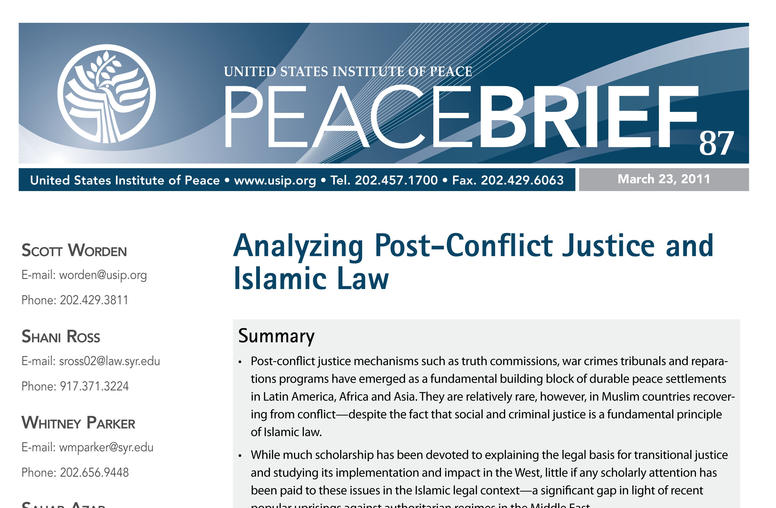
Analyzing Post-Conflict Justice and Islamic Law
Post-conflict justice mechanisms such as truth commissions, war crimes tribunals and reparations programs have emerged as a fundamental building block of durable peace settlements in Latin America, Africa and Asia. They are relatively rare, however, in Muslim countries recovering from conflict—despite the fact that social and criminal justice is a fundamental principle of Islamic law.
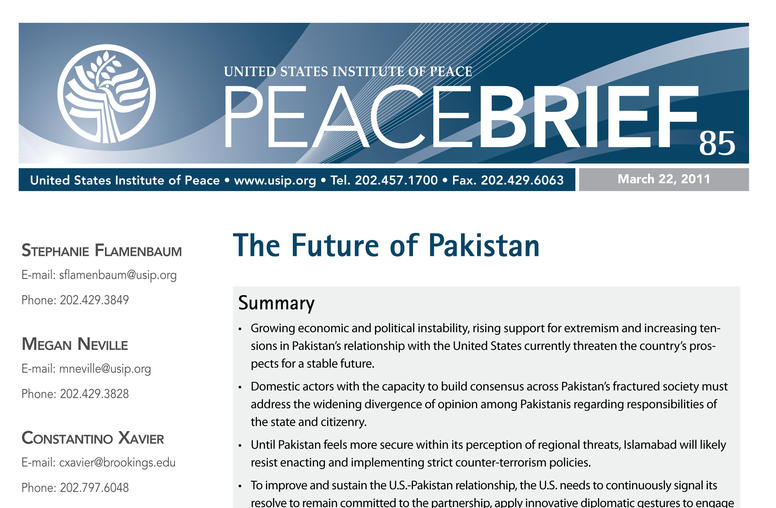
The Future of Pakistan
This Peace Brief is based on views expressed by 11 panel chairs and panelists during the January 31, 2011 event, “The Future of Pakistan,” hosted by USIP’s Center for Conflict Management and the Brookings Institution.
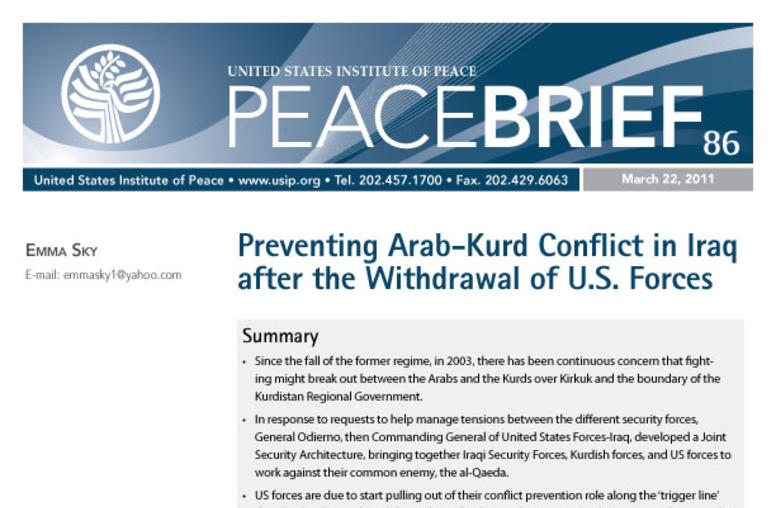
Preventing Arab-Kurd Conflict in Iraq after the Withdrawal of U.S. Forces
Since the fall of the former regime in 2003, there has been continuous concern that fighting might break out between the Arabs and the Kurds over Kirkuk and the boundary of the Kurdistan Regional Government. Unless new conflict prevention mechanisms are put in place, there is a real risk that tensions could boil over as people tire of waiting for a political resolution.
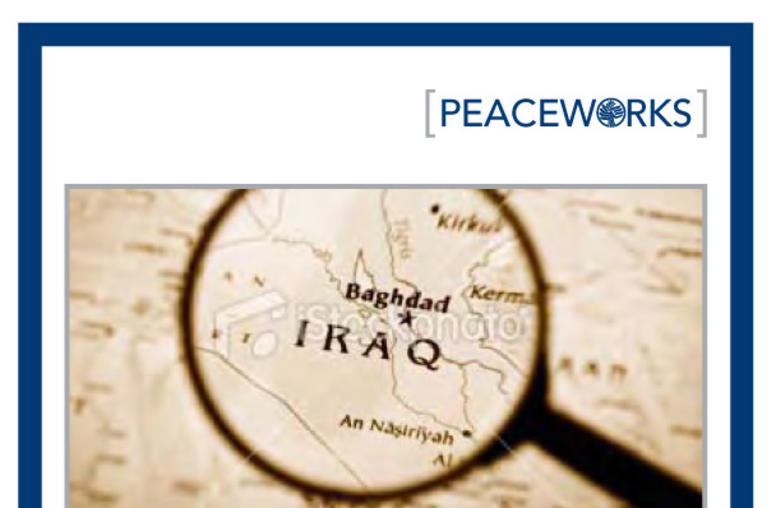
Iraq's Disputed Territories
According to U.S. government officials, the greatest potential threat to Iraq’s stability is not extremist groups but the prospect of Arab-Kurdish conflict over oil-rich Kirkuk and other disputed territories. This report attempts to demystify and disaggregate the often poorly defined disputed territories by drawing upon two data sets: the political preferences expressed in these territories during Iraq’s three postconstitution elections and archival records detailing these areas’ respective a...
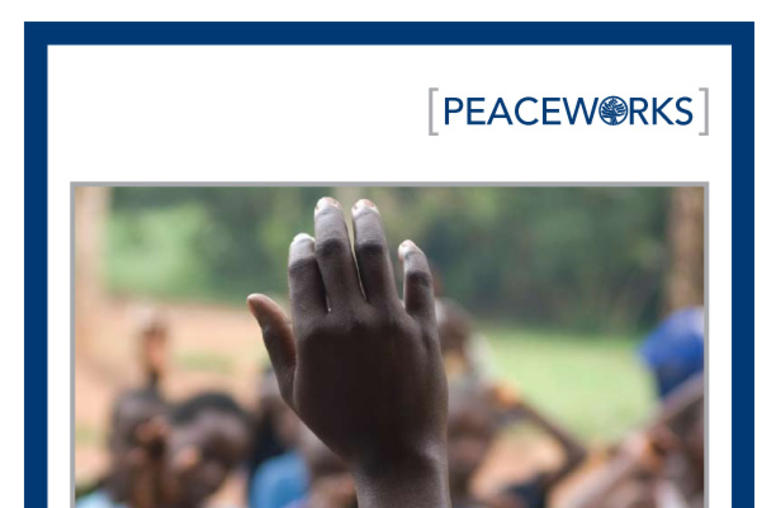
Making Peace after Genocide
A former seven-term member of Congress and presidential special envoy during the Clinton administration, Howard Wolpe led the U.S. delegation to the Arusha and Lusaka peace talks to end the civil wars in Burundi and the Democratic Republic of the Congo. This report distills the author’s experience as a presidential special envoy to Africa’s Great Lakes region from 1996 to 2001, and as the director of a Burundi leadership training initiative from 2003 to 2009.
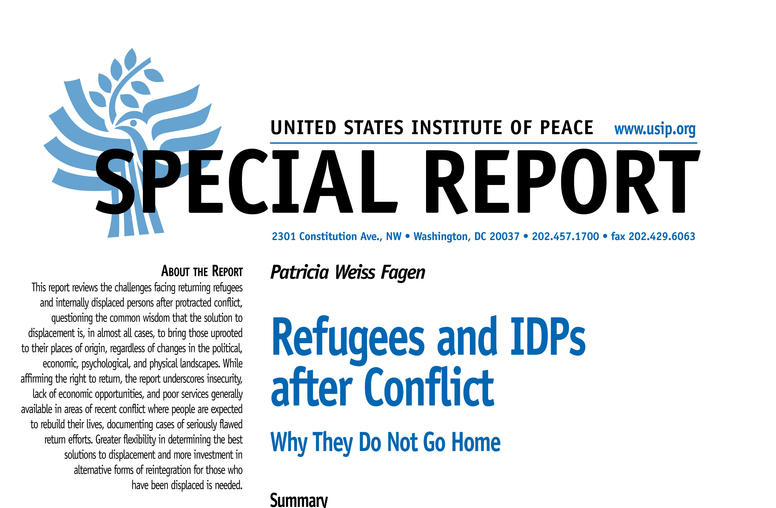
Refugees and IDPs after Conflict
This report reviews the challenges facing returning refugees and internally displaced persons after protracted conflict, questioning the common wisdom that the solution to displacement is, in almost all cases, to bring those uprooted to their places of origin, regardless of changes in the political, economic, psychological, and physical landscapes.
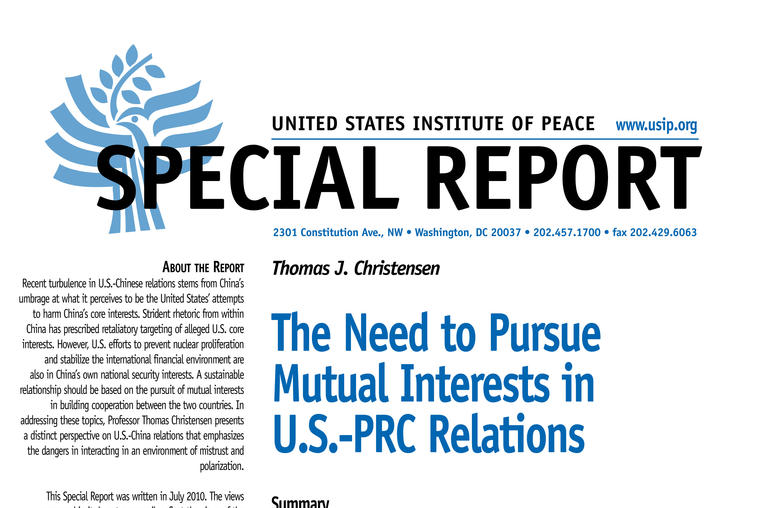
The Need to Pursue Mutual Interests in U.S.-PRC Relations
Recent turbulence in U.S.-Chinese relations stems from China’s umbrage at what it perceives to be the United States’ attempts to harm China’s core interests. Professor Thomas Christensen presents a distinct perspective on U.S.-China relations that emphasizes the dangers in interacting in an environment of mistrust and polarization.
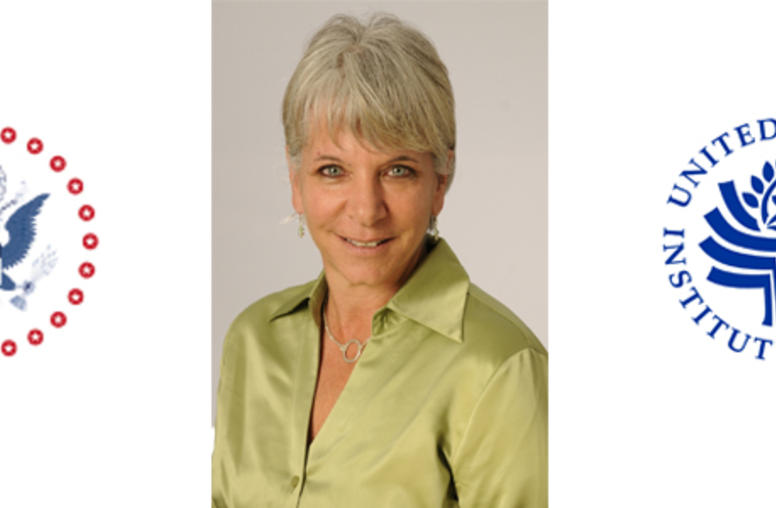
Testimony of Beth Ellen Cole before the Commission on Wartime Contracting
USIP’s Beth Ellen Cole testified before the Commission on Wartime Contracting about civilian-military relations and USIP-facilitated dialogue between the military, U.S. government agencies and nongovernmental organizations.
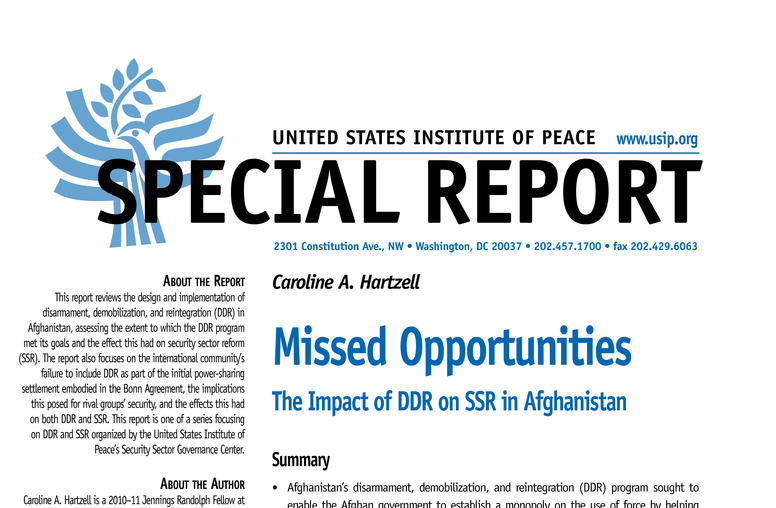
Missed Opportunities
This report reviews the design and implementation of disarmament, demobilization, and reintegration (DDR) in Afghanistan, assessing the extent to which the DDR program met its goals and the effect this had on security sector reform (SSR).
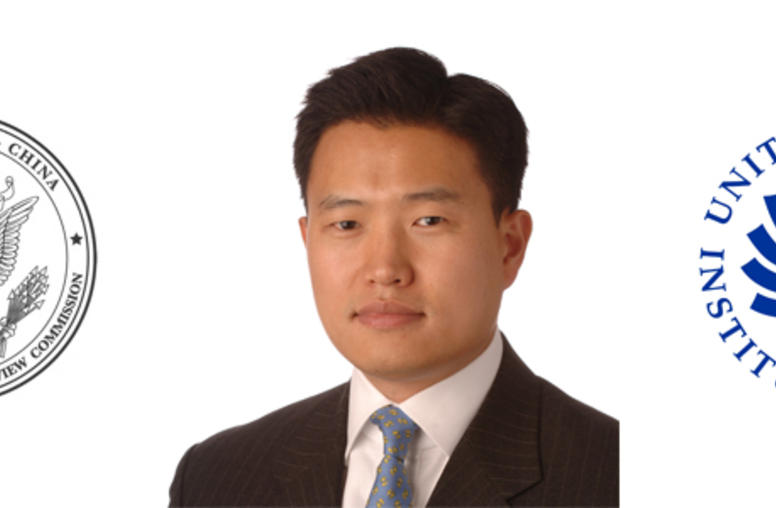
Testimony of John Park before the U.S.-China Economic and Security Review Commission
USIP's John Park testified before the U.S.-China Economic and Security Review Commission about the evolving roles of 'core interests' and 'mutual interests' in U.S.-China relations.